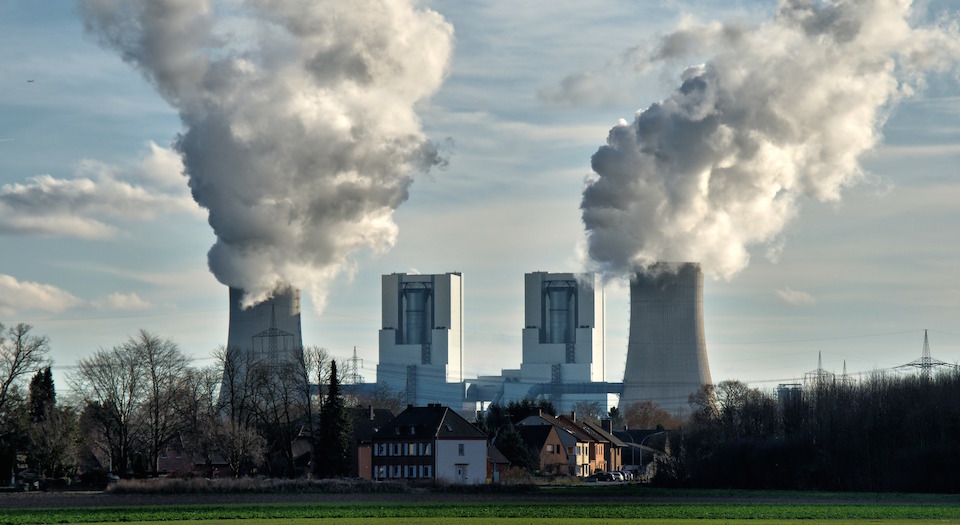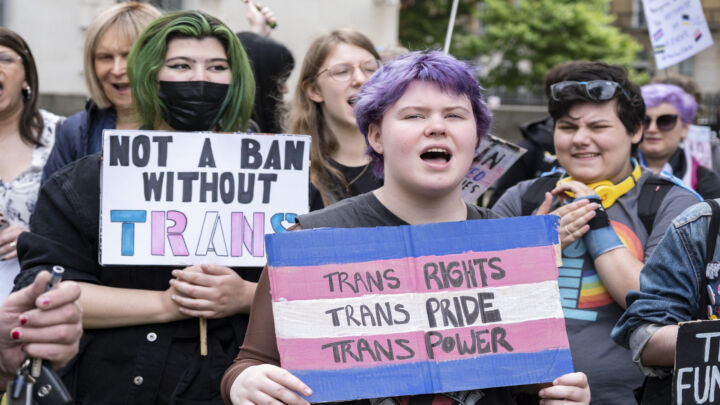The world needs more energy, not green BS
Western governments and agencies are now standing in the way of development.

Want unlimited, ad-free access? Become a spiked supporter.
Earlier this month, a report from the United Nations University’s Institute for Water, Environment and Health announced that ‘fecal sludge’ might be one answer to several of the world’s problems. According to the authors of Valuing Human Waste as an Energy Resource, if the excrement produced by those who lack access to sanitation – a billion people – was collected and processed, 10million homes could be provided with electricity. And this would amount to $200million-a-year worth of biogas. After all, where there’s muck there’s brass. For that reason, the report might be interesting to planners and civil engineers, but it was still given far more importance than it deserved. As the Daily Mail excitedly put it: ‘Human excrement can fuel developing world.’
The message from global institutions to the world’s poor is: ‘you may have your own shit, but you may not have coal’. In 2013, the World Bank, despite acknowledging many people’s lack of access to electricity, said that, because of climate change, it would no longer be supporting the development of coal-fired power stations. The announcement was made in accordance with the principles of the Sustainable Energy for All initiative, an alliance of global institutions, civil society and businesses that wants to ‘achieve a broad-based transformation of the world’s energy systems’. But note the caveat: ‘sustainable energy for all’ is not a commitment to ‘energy for all’.
Coal is the cheapest form of energy, but it is denied to all those who can least afford the alternatives. According to data compiled by the Sierra Club, a green, anti-coal NGO, there are 51 coal-fired power plants scheduled for construction in Europe, with a total capacity of 36 gigawatts (GW). Yet in Africa and the Middle East – where there are far fewer champions of climate change – there are just 29 coal-fired power-plant projects in the pipeline, with a total capacity of 20 GW. Meanwhile, a whopping 219 GW of capacity has been announced in China, and India has plans to increase its capacity by 75 GW. The toxic excreta of UN bodies and green NGOs can be seen in these massively uneven patterns of development.
A 2008 paper from Oxfam revealed much about what underpins such backward thinking. Rather than emphasising development as the way forward at all, Oxfam argued, in Survival of the fittest Pastoralism and climate change in East Africa, that ‘pastoralist communities’ (that is, communities primarily based around the raising of livestock) are the best way to tackle climate change. Therefore, Oxfam claimed, pastoralist forms of social organisation should be promoted and protected. In this highly deterministic and patronising tome, Oxfam claimed that pastoralist communities were perfectly adapted to the geography of East Africa, and that the Western model of development and governance is inappropriate. Oxfam’s anti coal campaign, Let them Eat Coal, even claims that not burning coal would ‘fight hunger’.
No less absurd or patronising, but more cautious about revealing its hostility to development, is the New Climate Economy, aka The Global Commission on the Economy and Climate – yet another attempt, or ‘initiative’, from unaccountable, undemocratic global bodies, including the World Bank, to foist ‘sustainable development’ on the world. A working paper, jointly published by the Global Commission and the Overseas Development Institute (ODI) last month was superficially concerned with ‘building electricity supplies in Africa for growth and universal access’. But ‘universal access’ only meant connection to an electricity grid for 40 per cent of Africans. ‘For about 60 per cent of the population, mini-grids and stand-alone systems would be the best means to provide access’, said the paper. Reiterating the point, the ODI’s director of strategic development, Dinah McLeod tweeted, ‘Yes: more to the Africa energy puzzle than off-grid, but grid won’t ever come for many. Let’s be optimistic realists.’
Low aspirations for African countries are not set by Africans. They are set by the likes of the UK Department for International Development (DfID), which recently set out its Energy Africa campaign – a manifesto for off-grid solar power. ‘Why is [the Department for International Development] pushing solar-only when Africans say they want on-grid electricity?’, asked Benjamin Leo of the US-based Centre for Global Development (CGD). The CGD conducted a survey of Tanzanians who already had connection to off-grid electricity. Ninety per cent of respondents still wanted a grid connection.
One reason for the UK’s loss of faith in grid electricity, of course, might be the looming failure of the past three governments’ domestic energy policies. The most recent Labour government promised a ‘green industrial revolution’. But all that happened during this ‘revolution’ was a doubling of electricity prices, followed by widespread closures of coal-fired plants, which now threaten the stability of the grid. In Germany, the indubitable pioneers of green energy, domestic energy prices are even higher and yet, in the past four years alone, 10 GW of coal-fired generating capacity has been added – more than half the amount planned across all of Africa.
In the past, organisations and individuals concerned with development believed that industrialisation was a good thing – a necessary condition for raising living standards, realising wider social change and expanding the possibilities of human life. Hubris, and naïve optimism, perhaps, allowed people to imagine that development was a simple, technological process. But the predominant ideas today are far more dangerous. Many in the so-called ‘development community’ have sacrificed any sensible notion of development to ‘sustainability’. They are not only free to influence, perhaps even dominate, the so-called ‘development agenda’; they also decide the terms of progress on behalf of people in developing nations, to whom they remain unaccountable. At talks leading up to the United Nations Framework – Convention on Climate Change (UNFCCC) meeting in Paris later this month, countries in the Organisation for Economic Co-operation and Development (OECD) have agreed to limit further any assistance to developing economies with ambitions to exploit coal resources.
But there is plenty to be cheerful about. Within the past 20 years, extreme poverty has halved, and almost every indicator of human welfare shows unprecedented progress. Perhaps that is what most terrifies an engorged, top-heavy class of environmental and ‘development’ technocrats: the possibility that the World’s problems are being solved not just without them, but in spite of them. It is worth considering the possibility that their plans may soon make ‘development agencies’ the main obstacle to development.
Ben Pile blogs at Climate Resistance.
£1 a month for 3 months
You’ve hit your monthly free article limit.
Support spiked and get unlimited access.
Support spiked – £1 a month for 3 months
spiked is funded by readers like you. Only 0.1% of regular readers currently support us. If just 1% did, we could grow our team and step up the fight for free speech and democracy.
Become a spiked supporter and enjoy unlimited, ad-free access, bonus content and exclusive events – while helping to keep independent journalism alive.
———————————————————————————————————————————–
Exclusive January offer: join today for £1 a month for 3 months. Then £5 a month, cancel anytime.
———————————————————————————————————————————–
Monthly support makes the biggest difference. Thank you.









Comments
Want to join the conversation?
Only spiked supporters and patrons, who donate regularly to us, can comment on our articles.